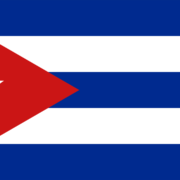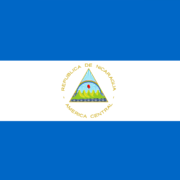Latin America
Colombia
Colombia, in the northwest of South America, is renowned for its stunning landscapes, including the Andes, Amazon rainforest, and Caribbean coastline, as well as its vibrant culture and history.
Latin America
Colombia, in the northwest of South America, is renowned for its stunning landscapes, including the Andes, Amazon rainforest, and Caribbean coastline, as well as its vibrant culture and history.
Population: 52 million
Main Religion: Catholicism 64% the role of Protestant and independent Christian communities is small but growing
Christians: 50 million
Christian literature Distribution
Colombia, country of northwestern South America. Colombia presents a remarkable study in contrasts, in both its geography and its society. The lofty snow-tipped peaks of the country’s interior cordilleras tower high above equatorial forests and savannas where surviving indigenous groups still follow the lifeways and traditions of their ancestors. In the cooler mountains, at intermediate elevations, modern cities are juxtaposed with traditional rural landscapes where mestizo farmers cultivate their small plots of coffee, corn (maize), and other crops. The more accessible Atlantic lowlands, dominated by large livestock haciendas and a tri-ethnic population, have a distinctively different character (Brittanica).
Colombia was one of three countries that emerged after the dissolution of Gran Colombia in 1830 — the others are Ecuador and Venezuela. A decades-long conflict among government forces, paramilitaries, and antigovernment insurgent groups heavily funded by the drug trade — principally the Revolutionary Armed Forces of Colombia (FARC) — escalated during the 1990s. In the wake of the paramilitary demobilisation in the 2000s, new criminal groups arose that included some former paramilitaries. After four years of formal peace negotiations, the Colombian Government signed a final accord with the FARC in 2016 that called for its members to demobilise, disarm, and reincorporate into society and politics. The accord also committed the Colombian Government to create three new institutions to form a ‘comprehensive system for truth, justice, reparation, and non-repetition,’ including a truth commission, a special unit to coordinate the search for those who disappeared during the conflict, and a ‘Special Jurisdiction for Peace’ to administer justice for conflict-related crimes. Despite decades of internal conflict and drug-trade-related security challenges, Colombia maintains relatively strong and independent democratic institutions characterised by peaceful, transparent elections and the protection of civil liberties.
Colombia is a presidential republic led by Gustavo Francisco Petro Urrego. It is labelled free by Freedom House, scoring 70 out of 100. The country, led by President Gustavo Petro, counts among the longest-standing democracies in Latin America, but one with a history of widespread violence and serious human rights abuses. Public institutions have demonstrated the capacity to check executive power, and the country’s main left-wing guerrilla group signed a peace accord in 2016. Nonetheless, Colombia faces enormous challenges in consolidating peace and guaranteeing political rights and civil liberties outside of major urban areas. Dozens of assassinations of human rights activists, civil society leaders, labor leaders, and former combatants were reported during the year. (Freedom House)
The constitution provides for freedom of religion, and the government generally respects this right in practice. The constitution guarantees freedom of expression, and opposition views are commonly aired in the media. However, journalists face intimidation and violence both while reporting and in retaliation for their work. The government has prosecuted several notorious cases of murdered journalists in recent years, but convictions are rare. Free expression groups including the Committee to Protect Journalists (CPJ) harshly criticized the government for a 2021 attempt to undermine the Inter-American Court of Human Rights (IACHR) ruling that October that the state bore responsibility for the 2000 kidnapping, sexual assault, and torture of journalist Jineth Bedoya. Self-censorship is common, and slander and defamation remain criminal offences. (Freedom House)
Open Doors reports that church leaders and other Christians continue to be harassed, extorted and murdered due to the violence around control of territories between armed guerillas, drug gangs and other armed groups. In some indigenous communities, there can be significant opposition toward anyone who has converted from traditional practices to follow Jesus.

 Nicaragua
Nicaragua